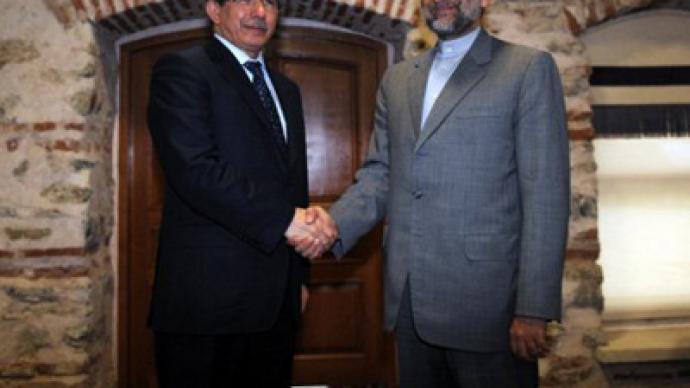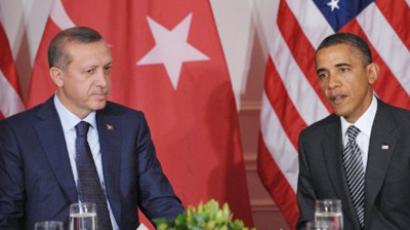'Turkey backs NATO & global missile defence, Iran opposes both'

With Turkey becoming head negotiator with Iran, its government is deliberating over the venue for the neighbors' next meeting. So what is the perception of Turkey in Iran – is it a good neighbor and a fellow Islamic nation, or a proxy of the West?
One of the most vigorous critics of Ankara and its attitude is Ali Akbar Velayati, advisor on international affairs to the Supreme Leader, Secretary General of the Islamic Awakening Conference and former Foreign Minister. (The “Islamic awakening” is what the West refers to as “the Arab Spring.”) He is among Iran’s most influential politicians. Velayati was the first to publicly denounce Turkey’s secular state – a “sacred cow” that even President Recep Tayyip Erdogan’s pro-Islamic Justice and Development Party has avoided contesting throughout all its years in power. Velayati views Turkey’s recent proposals as part of an American plan to run the Middle East by proxy, rather than a helpful initiative by a fellow Muslim nation. “Turkey is a NATO member state, and we are opposed to NATO. Turkey has stationed missile defense facilities on its territory, and we are against missile defense. Turkey is supporting the US and Israel-backed armed rebels in Syria, and we disagree with that,” says Velayati. Tehran believes Ankara has done everything it can to ensure that the P5+1 group will have its first meeting in the past 18 months in Turkey (as the US had insisted) rather than Baghdad, which would have been a more preferable venue for Iran. “We would definitely prefer to meet in Iraq to discuss our nuclear issue,” says Velayati. “Although we will not protest if Turkey is eventually appointed to host the negotiation. But Iraq would have been more desirable for us, because we feel greater affinity to the government of Iraq rather than the Turkish government.” Meanwhile, the Iranians are not regarding the negotiation itself as anything meaningful – not after the recent tightening of sanctions against Iran. A number of officials have privately opined that a meeting is being organized merely so that Tehran will allow the IAEA to inspect military facilities that are no longer related to the Iranian nuclear program. Turkey is nevertheless an important international counterpart for Iran, especially in a situation where Iran is faced with ramped-up sanctions. “You cannot change your neighbor,” says Velayati. “We have a very large trade volume with Turkey, which amounted to about $16 billion in 2011. We have made it our priority to promote our trade with Turkey to $30 billion in 2012.” Considering the sanctions and overall pressure against Iran, such a policy objective comes across as a statement of defiance against the United States and even Turkey itself. Ali Akbar Javanfekr, adviser to President Ahmadinejad and head of Iran’s official news agency IRNA, is less categorical in his opinions. “We feel sorry that Turkey has to play games that will not do any good in terms of ensuring peace in the region,” he says. “Erdogan has visited Iran, but our countries continue to disagree. Following Erdogan’s visit, Turkey announced it was joining the embargo against Iran, and that Iran should reduce its oil prices”, says the presidential adviser.At the same time, Javanfekr believes Turkey’s decisions were “ill-advised” – and that it will probably reconsider them in the future. President Ahmadinejad’s International Affairs Director Mohammad Reza Forghani is convinced that Turkey is involved in a high-stakes political game aimed at asserting itself as a major regional power. He believes this is the only reasonable explanation for the stark difference between the statements President Erdogan made while in Iran, and his rhetoric at home.“There was speculation in the media concerning some tough statements Erdogan had allegedly made with regard to Iran,” says Forghani. “But official sources in the Turkish government subsequently refuted this.” One way or another, Turkey eventually joined in the sanctions. However, Turkey has also taken a number of steps that Iran views as positive. “Following Kofi Annan’s statements on Syria, the Turkish government also announced it was opposed to an intervention against this country. We are still at odds over Syria, but we hope the Turks realize that a foreign intervention would not be to anyone’s benefit,” Forghani says. As far as Turkey’s recent decision to boycott Iranian oil is concerned, officials in Tehran believe that Turkey’s business community is under as much pressure from the United States as is the Turkish government. “Turkey has officially stated that the reduction in oil imports from Iran was due to decisions taken by private companies and not the government. But we believe the Turkish companies had been pressured into slashing their imports from Iran,” says Forghani.Iranian officials believe their main achievement in dealing with Ankara is President Erdogan’s verbal promises of support for Iran’s civilian nuclear program – an issue of utmost importance for Tehran. “Erdogan has supported Iran on its nuclear development plan, and expressed his willingness to promote our bilateral relations,” Forghani concludes.
Nadezhda Kevorkova, RT













